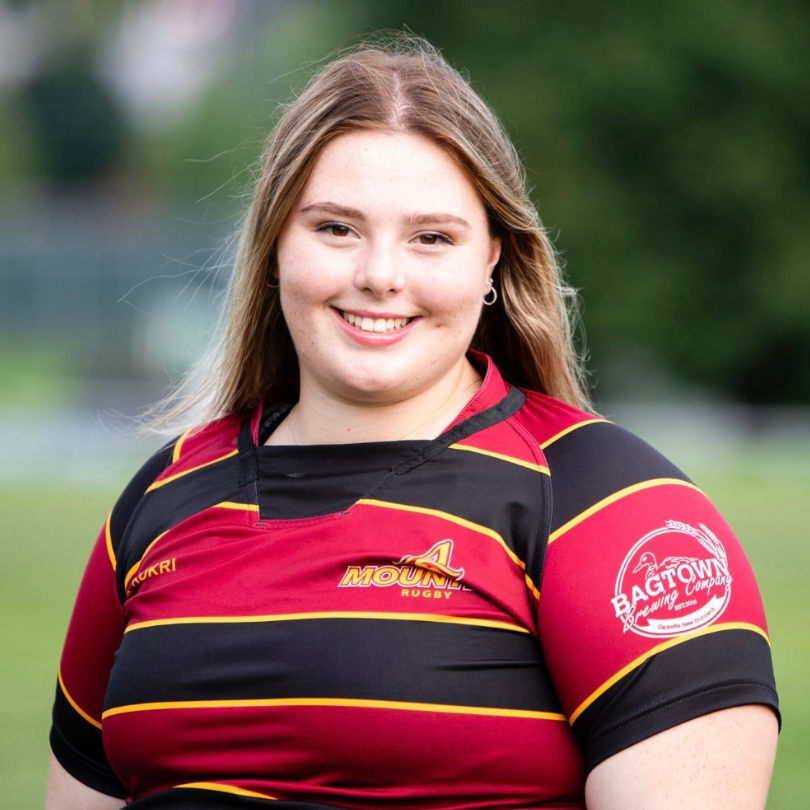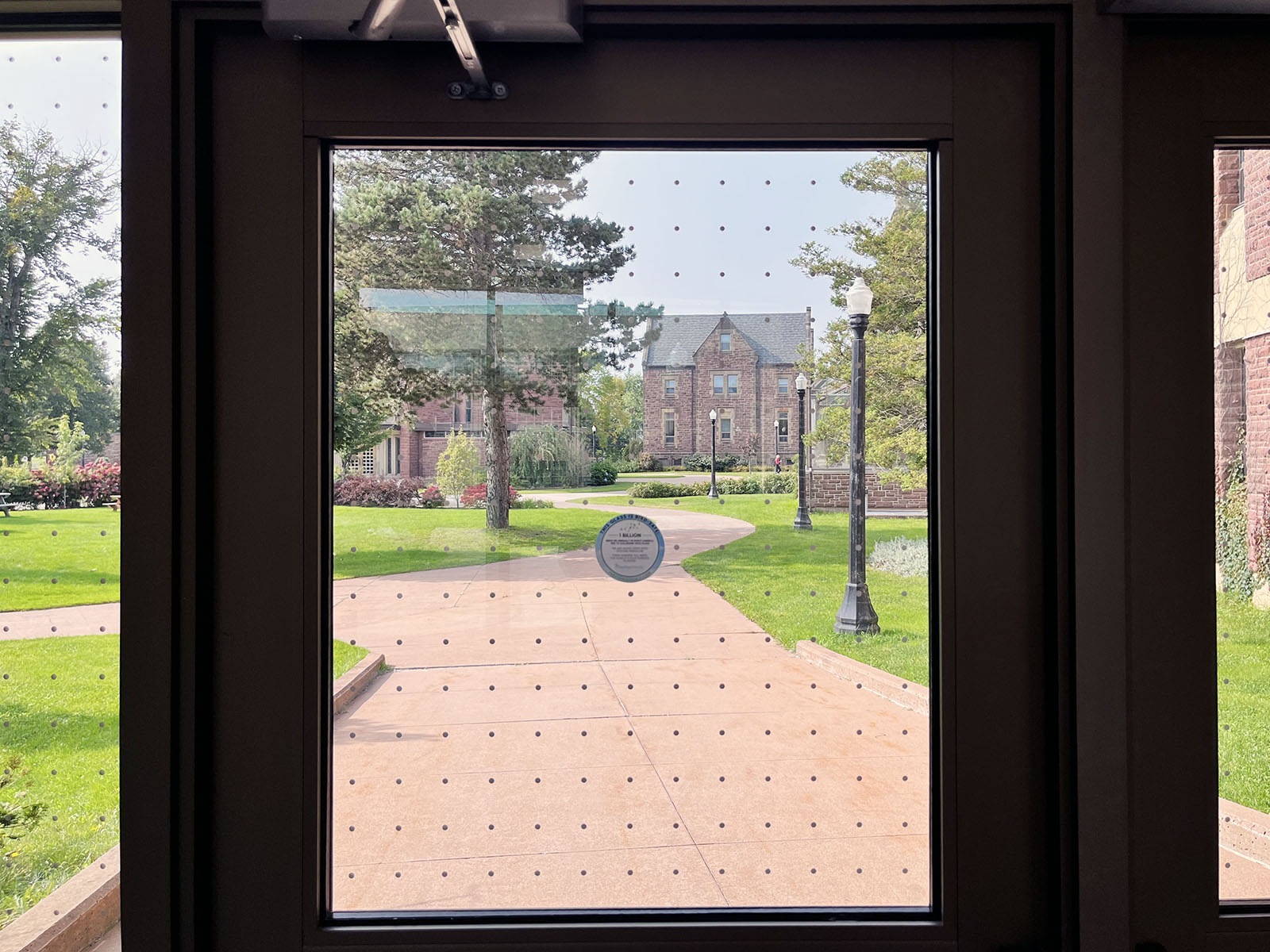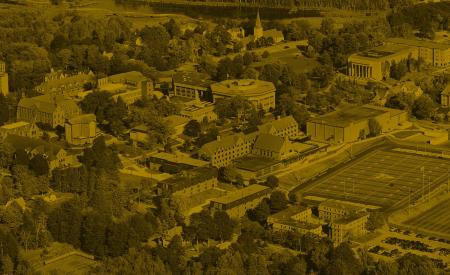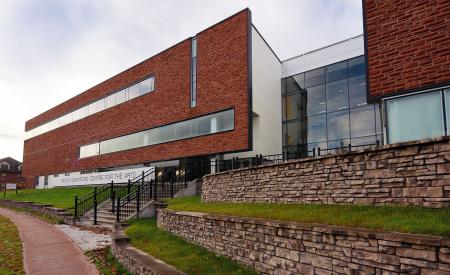Bird safety initiative takes flight at Mount Allison University
Visitors to campus may have noticed an unusual sight at the entrance of Barclay recently — dots on the glass. These aren’t just for show; they are part of an ongoing effort to protect birds on campus.
Last April, fourth-year honours biology student Mackenzie Warman became increasingly concerned about the high number of bird collisions that occurred during the spring migration season.

“We started to receive reports of window collisions,” she says. “One day, someone in our lab found an American Woodcock, which is actually a shorebird, that had hit a window. It was still alive, so we tried to take it to AWI [Atlantic Wildlife Institute], but he sadly didn’t make it. And the next day, we found an American robin that had died on campus.”
After Warman voiced her concerns on Twitter, Dean of Science Dr. Jennifer Tomes reached out to her, and a project emerged.
Over the next few months, Warman conducted research and met with Director of Facilities Management Kristopher Kierstead and Facilities Management staff to advise them on how the University could proactively address window collisions on campus.
After exploring numerous preventative measures, Warman recommended the use of collision tape. Thanks to the joint support of Facilities Management and the Faculty of Science, the glass entryway of Barclay underwent retrofitting in September. There are also hopes of expanding these measures to other areas prone to bird strikes in the future.

Another critical aspect of this initiative was the creation of a form for Facilities Management staff to report deceased birds found on campus. This data will enable Warman to track and monitor bird strike injuries and assist Facilities Management in identifying other areas of concern.
“I am so proud of the impact Mackenzie has had on campus and success of this project,” says Dr. Jennifer Tomes. “I think this project really reflects what we do at Mount Allison, where students are not only learners but also collaborators contributing to the ongoing growth and development of our community.”
Warman is also planning outreach efforts as part of an independent study with biology professor Dr. James Baxter-Gilbert and post-doctoral fellow Dr. Devin de Zwaan to promote the initiative and encourage others to follow suit.
“One of the main goals of this independent study is to find ways to involve the community,” says Warman.
Currently, Warman plans to set up a booth at the Sackville Farmers' Market during the peak fall migration in early October. This will provide an opportunity for people interested in learning more about Mount Allison's efforts to chat with Warman and explore steps they can take at home.
“Something as simple as placing fly window screens on the outside of your windows can act as a cushion. And maybe if you have children, painting on the windows can be something you do once a year,” says Warman.
However, she stresses the importance of understanding what works and what doesn’t. Stickers and paint must be spaced appropriately to effectively prevent bird collisions. For more information, Warman suggests the Safe Wings Ottawa website (safewings.ca).
Warman also hopes to organize a workshop for NGOs and Mount Allison stakeholders to discuss campus initiatives and potential future projects.
“As far as I know, Mount Allison is the first University in Atlantic Canada to take this proactive step towards bird safety on campus,” says Warman. “We have the opportunity to be a leader in this area. Although there are still areas of concern on campus, this is an amazing first step for Mount Allison and Sackville in general.”




